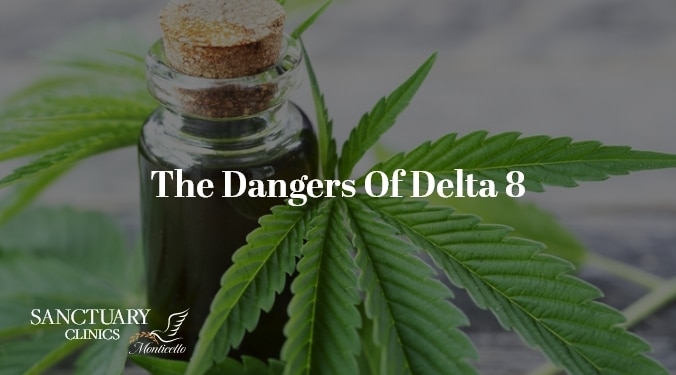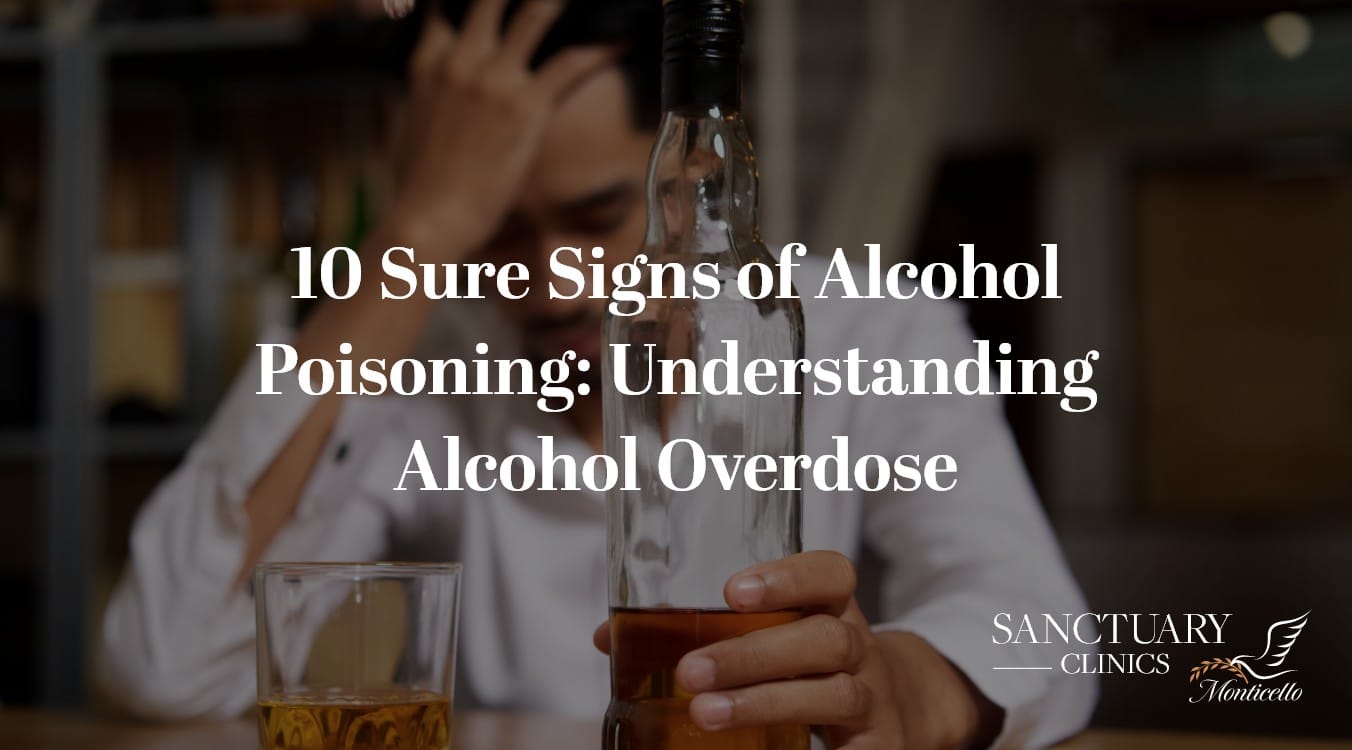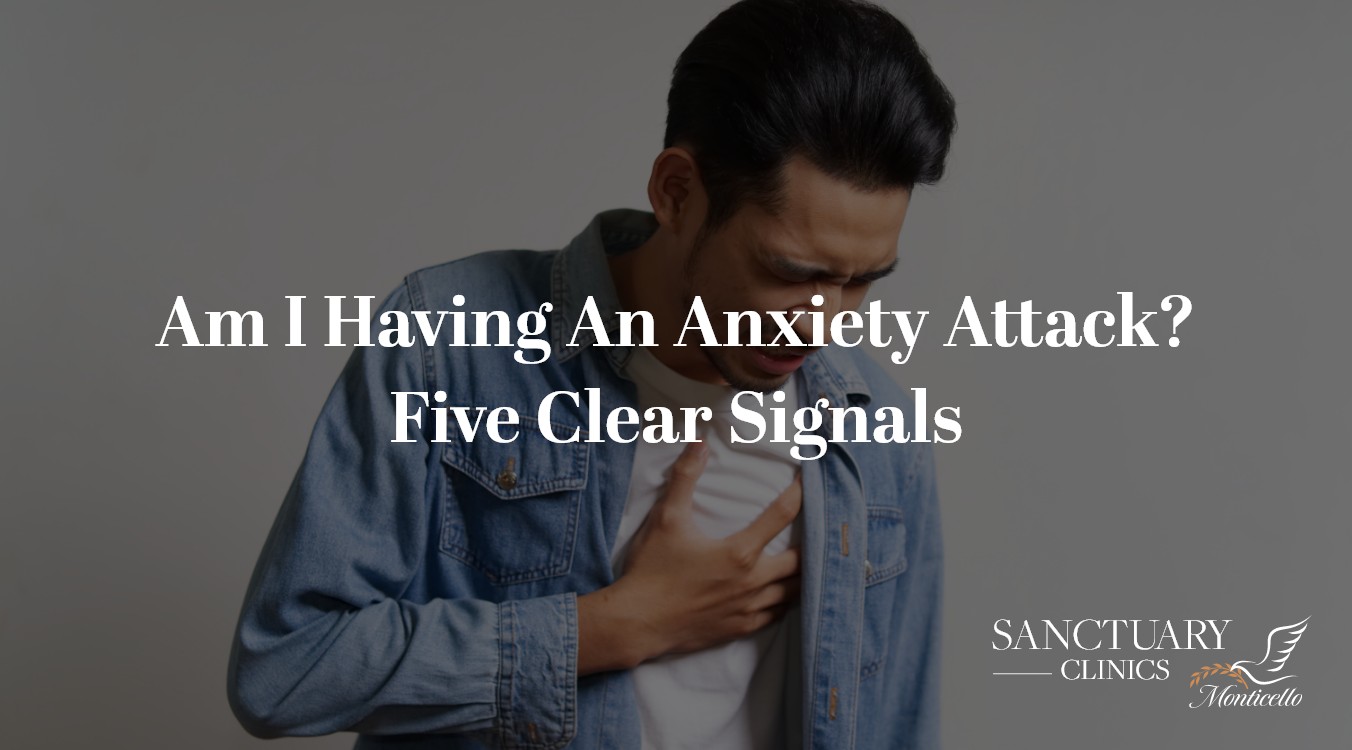A Warning from Sanctuary Clinics
A new trend has emerged in the world of cannabis products which is raising concerns among healthcare professionals and addiction treatment centers alike. Delta 8, a compound derived from hemp and created in laboratories is gaining popularity as a “legal” and less potent alternative to Delta 9, more commonly known as THC. The increasing use of Delta 8 has led to thousands of ER visits with complaints ranging anywhere from confusion to hallucinations, vomiting to passing out.
The rising use of Delta 8 is especially concerning to treatment centers like Sanctuary Clinics in Florida, as they treat increasing numbers of patients for cannabis-induced psychosis and addiction.
“Delta 8 is marketed here in Florida as ‘legal weed,’ but in many ways it’s worse than THC,” says David Hoskins, founder of Sanctuary Clinics. “For starters, since the FDA doesn’t regulate CBD, the Delta 8 products hitting the shelves in your local gas station convenience store or smoke shop are a great unknown. These compounds are being created in laboratories for profit. Who knows what’s going into them?”
Knowing what has gone into a laboratory produced product that you’re putting into your body is vitally important.
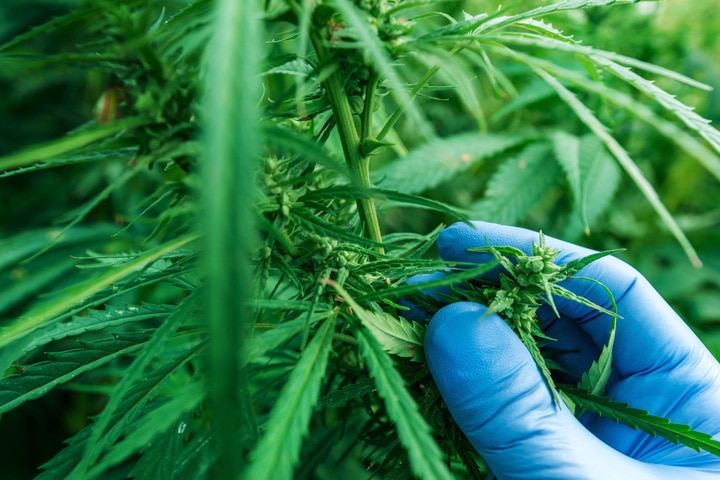
Learning from the Past
Back in the summer of 2019, thousands of otherwise healthy young people showed up in emergency rooms across the country with severe respiratory problems after vaping, many winding up in intensive care and on ventilators. That serious uptick in vaping-related illness prompted the Centers for Disease Control and Prevention to issue an emergency warning to consumers to stop buying bootlegged and street (or in other words, unregulated) cannabis and e-cigarette cartridges. Not knowing can be a matter of life and death.
In 2021, the Centers for Disease Control and Prevention issued a similar warning to alert public health departments, healthcare professionals, first responders, poison control centers, laboratories, and the general public to the increased availability of cannabis products containing delta-8 tetrahydrocannabinol (THC) and the potential for adverse events due to insufficient labeling of products containing THC and cannabidiol (CBD). Déjà vu?
Get Help Today.
We are here to help you through every aspect of recovery.
Let us call you to learn more about our treatment options.
We are here to help you through every aspect of recovery. Let us call you to learn more about our treatment options.
What is Delta 8?
Delta 8, short for Delta-8-tetrahydrocannabinol, is a cannabinoid found in both hemp and marijuana plants, though it occurs in much smaller quantities in hemp. This compound is chemically similar to Delta 9, the well-known psychoactive component of marijuana, but with some subtle differences in its molecular structure. Because hemp is not regulated, Delta 8 is considered “legal” in many states where Delta 9 use is illegal.
What is Delta 9?
Delta 9-tetrahydrocannabinol, or Delta 9 THC, is the psychoactive compound responsible for the “high” associated with marijuana use. THC binds to receptors in your brain and central nervous system, affecting your mood, perception, and cognitive function. Delta 9 is classified as a Schedule I controlled substance in the United States due to its potential for abuse and lack of recognized medical value.
What is the Difference? What Makes Delta 8 So Dangerous?
Delta 8 contains less than 0.3% THC, which has led to manufacturers introducing additives into Delta 8 products and consumers taking more to produce the desired effects.
Delta 8 is dangerous for several reasons:
- Lack of regulation. Product quality and safety standards may vary widely, posing health risks to consumers.
- Form and availability. Delta 8 comes in many forms including gummies, vape cartridges and tinctures. Delta 8 products are easy to find and purchase and are growing in popularity, especially among young people.
- Psychoactive effects. While Delta 8 is less potent than Delta 9, it still has psychoactive properties and can lead to impairment and other THC-induced psychological risks.
- Misleading marketing and word on the street. Delta 8 products are marketed and talked about as “legal,” leading consumers to believe they can use them without legal consequences or risk of harm.
Between February 2021 and 2022, poison control centers documented over 2,300 calls about exposures to Delta-8. Researchers tracking social media for self-reported negative effects of Delta 8 discovered more than 2,000 additional adverse experiences and more than 400 serious adverse events. The tide is rising.
HThe Side-Effects of Delta 8
The use of Delta 8 can result in a range of side-effects, including:
- Anxiety and paranoia, or even panic attacks in some users, especially at higher doses.
- Dry mouth and red eyes.
- Impaired cognitive function, leading to memory and concentration problems.
- Dizziness and lightheadedness.
- Increased heart rate, which can be risky for people with heart conditions.
- Nausea and vomiting.
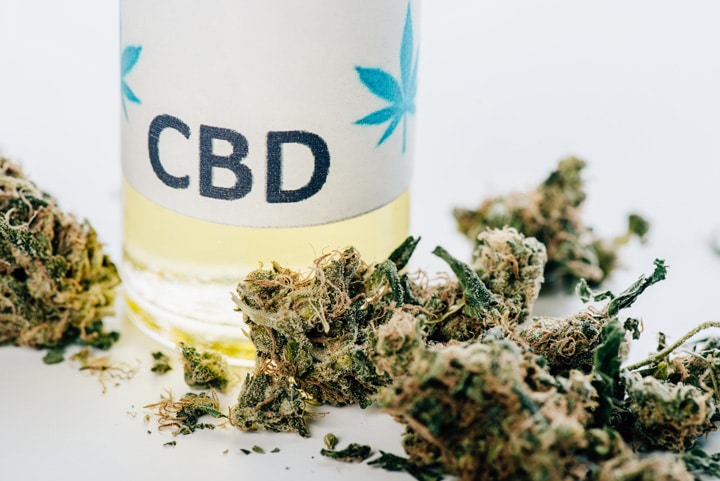
The Long-Term Implications of Using Delta 8
Long-term use of Delta 8 can have several negative consequences, including:
- Dependence and addiction, especially when used regularly or in high doses.
- Mental health effects, potentially exacerbating or contributing to mental health issues such as anxiety, depression, mood disorders, and psychosis.
- Cognitive impairment, affecting memory, learning, and problem-solving abilities.
- Increased tolerance, requiring higher doses to achieve the desired effects, which can increase the risk of adverse effects.
- Legal consequences, including fines and incarceration.
Sanctuary Clinics in Florida is the Leading Cannabis Cessation and Cannabis-Induced Psychosis Treatment Program in the United States. Sanctuary’s Medical Coordinator and Interventionist, Dr. Sesi Akoto, stresses the urgency of this warning:
“As a doctor, I am very concerned that we are on the verge of a drug contagion that is going to dwarf the opioid epidemic. As cannabis is being medicalized, decriminalized, and legalized in state after state; as cannabis use is increasing at staggering rates across age demographics and particularly among youth and young adults, the message people are getting is that THC is safe. Delta 8 products are multiplying the dangers, especially among young people.”
If you or someone you love is struggling with THC, Sanctuary Clinics can help. Call and speak with someone right now. (850) 935-3637
What Makes Sanctuary Clinics Different and More Effective than Other Treatment Programs?
Sanctuary Clinics is truly a sanctuary—a place where God is uniquely and powerfully present and where hurting people find healing and recovery.
Sanctuary employs the latest in medical interventions and medications, evidence-based therapies and practices, all administered by a team of licensed and experienced doctors, therapists, clinicians and facilitators.
At Sanctuary Clinics, healing and hope are discovered in the context of authentic Christian community, with staff and patients living and sharing life together in loving relationship. Here, your pathway to health and wholeness is not a solitary trek, but a shared journey. The support, encouragement, and accountability of loving relationships as you focus on your health are of inestimable value to the process.
Get Help Today.
We are here to help you through every aspect of recovery.
Let us call you to learn more about our treatment options.
We are here to help you through every aspect of recovery. Let us call you to learn more about our treatment options.


